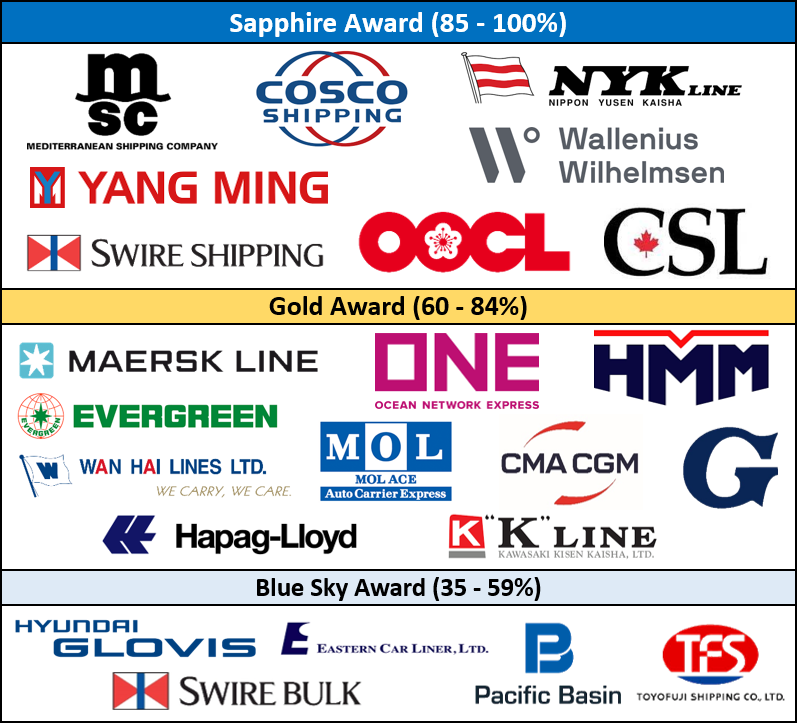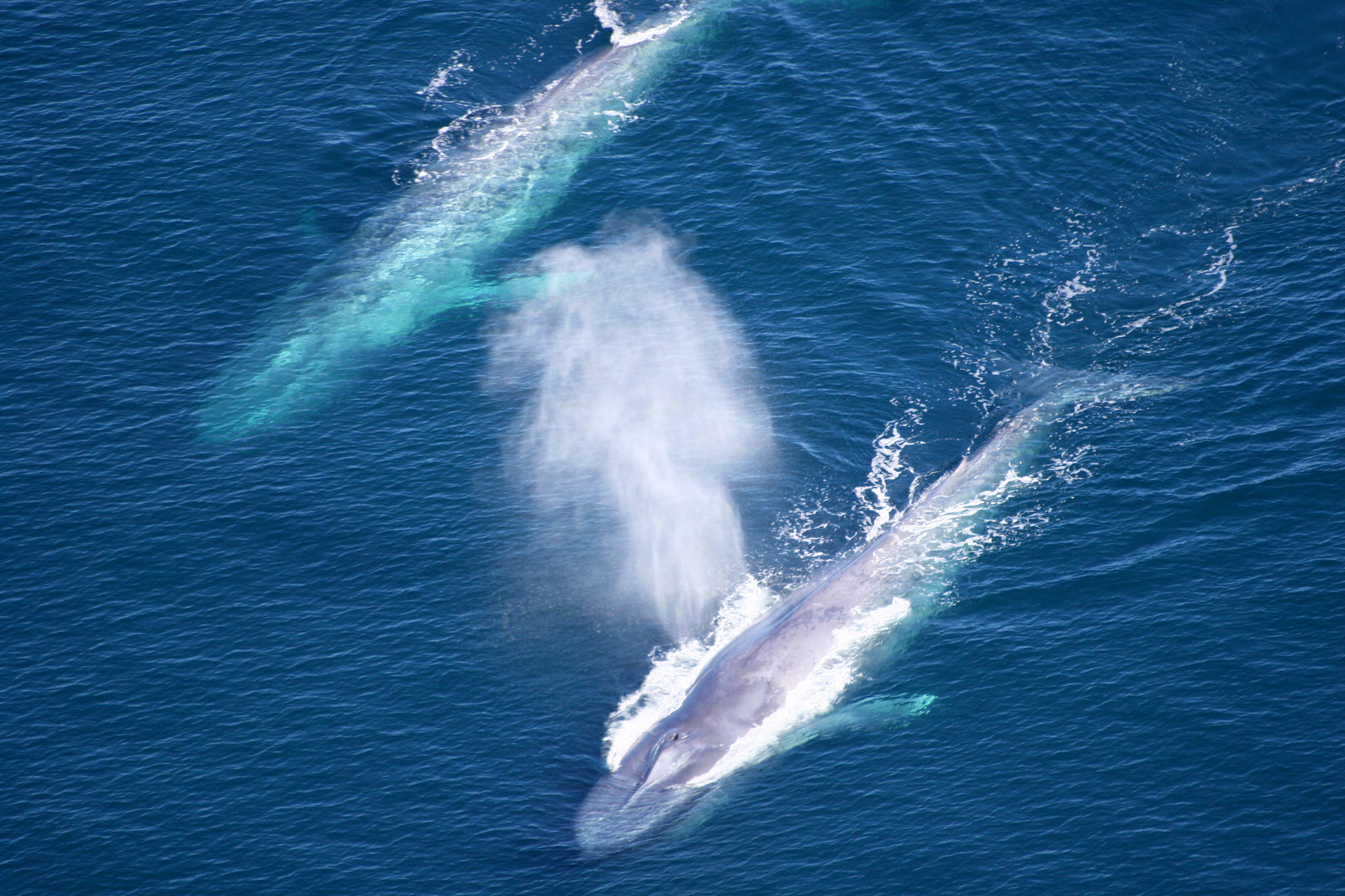Shipping companies received awards for reducing speeds in the 2022 “Protecting Blue Whales & Blue Skies” program. Twenty three companies participated, transiting at 10 knots or less in the San Francisco Bay Area and the Southern California region.
The voluntary incentive program ran May 1 – Dec. 15, 2022. Participation was greater than any previous year, and increased from eighteen shipping companies participating in 2021.
Shipping companies received recognition and financial awards based on the percent of distance traveled by their vessels through the Vessel Speed Reduction (VSR) zones at 10 knots or less and with an average speed of 12 knots or less.
The three award tiers are Sapphire (85-100% of fleet total distance in VSR zones traveled at ten knots or less), Gold (60-84%), and Blue Sky (35-59%). Automatic Identification System transponders on each ship transmit the ship’s speed and location. Data was analyzed for each fleet and the company’s performance was classified by tier.
Eight participating companies reached the Sapphire level, the most in the top category since the program began. They include OOCL, MSC, Swire Shipping, Yang Ming, COSCO Shipping, NYK Ro-Ro, Wallenius Wilhelmsen, and CSL Group.

The ten-knot target complements the NOAA, U.S. Coast Guard, and EPA requests for all vessels (300 gross tons or larger) to reduce speeds during the months of peak air pollution and endangered blue, humpback, and fin whale abundance to protect these whales from ship strikes.
Ship strikes are a major threat to whales globally and to the recovery of endangered blue, fin, and humpback whales in California waters. Reducing the risk of ship strikes is a major priority of NOAA’s, including NOAA’s West Coast national marine sanctuaries. From 2007-2022, observed and documented deaths off of California totaled 52 endangered whales. This is thought to represent only a small fraction of the total number of ship strikes taking place annually.
The timing of the program also coincides with the season when ground-level ozone (smog) concentrations are typically high. The 10-knot target allows ships to travel at an efficient operating load using less fuel and producing less pollution.

The VSR incentive program has expanded in environmental benefits each year. Of the 344,000 NM of ocean transited by all the ships in the program, nearly 270,000 NM were at 10 knots or less, which is equivalent to traversing the circumference of the Earth more than ten times.
Ships in the program transiting the southern California ~200 NM VSR zone traveled at 10 knots or less for 79% of the total miles traveled. Cooperation has steadily increased season after season. This shows increasing commitment by participating companies over the years.
In the ~100 NM San Francisco Bay Area VSR zone, which was expanded in 2022, cooperation levels from the participating companies rose to 72%, up from 60% in 2021.
Shipping companies that participated in the 2022 program reduced their air pollutant emissions by ~920 tons of NOx and 32,000 metric tons of regional GHGs. For comparison, the NOx reductions are equivalent to converting 580,000 passenger vehicles to zero emissions for a single year.
The transits of vessels participating in the VSR program posed ~44% less strike mortality risk to whales than if those vessels did not slow in cooperation with the program.
Ships in the Sapphire, Gold, and Blue Sky award tiers had sound levels that were 4.6 dB per transit lower when compared to 2021 baseline source levels. With a reduction in noise pollution, whales can likely communicate easier.
Fourteen companies – OOCL, MSC, COSCO Shipping Line, CSL Group, Ocean Network Express (ONE), Maersk, “K” Line, Wallenius Wilhelmsen, Wan Hai, Evergreen Shipping, Swire Shipping, Hapag Lloyd, GALI, and Yang Ming – generously declined all or part of their financial incentive payments. Those funds will be reinvested in the program.
The 2023 program runs May 1 – Dec. 15, 2023. This will be the biggest season yet for whale protection and clean air, with tanker operators invited to join.
The program has also implemented an Ambassador Initiative, for brands interested in reducing the impact of their global supply chain. Shippers receive data on the reduced speed efforts of their shipping companies and the resulting decrease in air pollutants, greenhouse gasses, ship strikes and ocean noise. This information can then be used to inform consumers purchasing their products and help these brands make more sustainable shipping choices.
The Protecting Blue Whales and Blue Skies program is a collaborative effort by air pollution control districts, California national marine sanctuaries, the California Marine Sanctuary Foundation, and other non-profit organizations.
For more information, visit www.bluewhalesblueskies.org.


